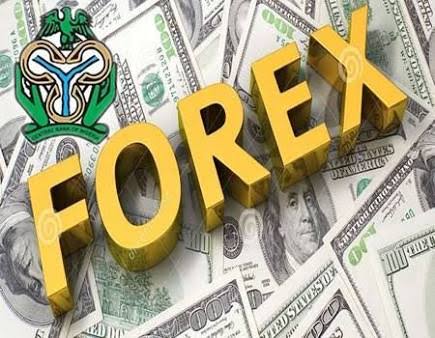The continued depreciation of the naira against major foreign currencies and foreign exchange shortage is an indication t
The continued depreciation of the naira against major foreign currencies and foreign exchange shortage is an indication that the unification of the exchange rates is seemingly not working. The acute shortage of forex apparently defeats the objectives of the harmonisation of the multiple exchange rates, which include to discourage arbitrage in currency trading and attract foreign investment.
The increasing demand for forex by end-users is piling pressure on the limited dollar available in the market. Since the unification of the exchange rates a month ago, the dollar shortage has widened the official and the parallel market rates gap. The dearth of forex has left the banks and black market dealers to source for forex outside the banking system to remain in business. The situation has put the end-users such as travellers, airlines passengers and students paying for tuition fees and other expenses abroad in dilemma.
As of last weekend, exchange rate was about N878/$. The inability of the Central Bank of Nigeria (CBN) to meet the official market demand has pushed many to the black market. Despite the promise of the Acting Governor of the CBN, Folashodun Shonubi, to tackle forex demand pressure, amid worsening inflation, rising fuel costs and other challenges, the situation has not abated. The Tinubu administration did not properly factor in the supply side of the foreign exchange before the unification of the multiple exchange rates. The government can still do the needful before the state of the economy gets much worse.
Shonubi had at the end of the Monetary Policy Committee meeting, last month, said that the “market needs to find its level.” He claimed that “there is a pent-up demand, which the market cannot cater for.” The inability of the apex bank to address the persistent forex shortage is causing prices to surge. We believe that the value of naira will continue to depreciate and remain under the current intense pressure as long as forex remains scarce, especially with increase in import bills and sharp decline in external reserves.
This is so because Nigeria’s economy has been largely import-driven and major transactions done in foreign currencies. This is having its toll on the country’s foreign reserves. For instance, Nigeria’s external reserves lost $167.2 million in July. Figures from the CBN showed that the reserves, which ended on June 30, 2023 at $34.12billion, fell to $33.95 billion as of July 28, 2023. The failure to tackle forex shortage could have dire consequences on the economic recovery. In the first place, the removal of fuel subsidy and floating of the naira when the economy is yet to be moved from consumption to production, is a bad idea. It amounts to putting the cart before the horse.
One of the immediate implications of the current forex shortage is that Nigerian companies may struggle to repay their debts if the scarcity of forex persists. Statistics show that for some years now, Nigerian financial and energy services firms have issued more than $20billion dollar-denominated debt on international capital markets, including over $5billion in Eurobonds since the start of 2014. It has worsened lately.
A few years ago, US-based JP Morgan, said it was considering removing Nigeria from its influential Emerging Markets Bonds Index (GBI-EMI) due to liquidity issues. This is a move that could prompt more capital outflows and increase the cost of Nigerian firms to borrow abroad. With no end in sight yet of the forex shortage and upswing in inflation on various macroeconomic variables, the MPC recently hiked interest rate to 18.75 per cent, from 18.50 per cent.
This is most likely to have a dampening effect on output growth of the economy. Already, manufacturers are complaining about the negative impact on the economy. This will invariably lead to higher borrowing rates, which will negatively affect companies and manufacturers that borrow capital to remain in business. If not checked promptly, this could lead to another form of economic uncertainty as higher interest rates will slow down productive activities.
In that regard, the CBN should be cautious in key policy decisions. Core policy measures should be tailored to spur growth and restore confidence in the economy. So far, there is little glimmer of hope in the horizon for the economy. Nigeria’s economy should be saved from this imminent danger caused by shortage of forex and depreciation of the naira.
It is likely that the floating of the naira might have caused the liabilities of many companies to balloon by over 50 per cent in the two months of this administration. It will also lead to capital erosion for banks and other companies that are valued in naira. It will reduce the influence of Nigerian banks in the global market. In all, Nigeria risks losing Africa’s biggest economy status if the plethora of fiscal and monetary policy challenges facing the country are not urgently addressed. The economy must be salvaged from imminent collapse.
sunnewsonline.com
